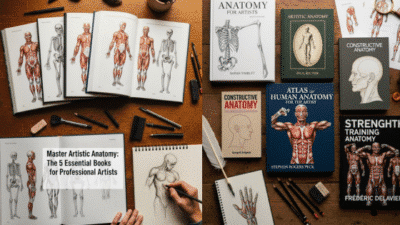Ever felt like your words just aren’t hitting the mark? Whether you’re crafting an email, drafting a report, or trying to tell a compelling story, strong writing skills are your superpower in today’s world. But let’s be honest, the thought of “improving writing skills” can sound a bit like homework, right? Dry grammar lessons, endless essays, and the fear of the dreaded red pen. What if I told you it doesn’t have to be a chore? What if leveling up your writing could actually be… fun and easy?
Forget the stuffy textbooks for a moment. This guide is all about discovering enjoyable, practical ways to sharpen your prose, boost your confidence, and make your communication shine. We’re going to dive into actionable tips and playful exercises that will transform your writing, making it clearer, more engaging, and impactful, without feeling like a burdensome task. Get ready to unlock your inner wordsmith and start enjoying the journey to better writing!


Why Bother? The Unexpected Power of Great Writing
Before we jump into the “how,” let’s spend a moment on the “why.” You might think, “I’m not a novelist, why do I need to be a great writer?” The truth is, writing isn’t just for authors. It’s the backbone of almost all effective communication in your personal and professional life.
Think about it:
- Professional Success: Clear, concise emails can land you that promotion. Well-structured reports can impress your boss. Engaging presentations (yes, you write those too!) can win over clients. Good writing signals professionalism, attention to detail, and intelligent thought. Studies have even shown that employees with strong communication skills are more likely to be hired and promoted.
- Personal Connections: From heartfelt letters to captivating social media posts, your ability to express yourself helps you connect with others on a deeper level. It’s how you share your ideas, your humor, your passions.
- Critical Thinking: Writing isn’t just about putting words on paper; it’s about organizing your thoughts. The process of writing forces you to think clearly, logically, and critically about a topic. It helps you clarify your own understanding.
- Influence and Persuasion: Whether you’re trying to convince a friend to try a new restaurant or persuading stakeholders to back your project, effective writing is a powerful tool for influence. It helps you build arguments, present evidence, and sway opinions.
So, while we’re aiming for fun, let’s remember the serious payoffs. Improving your writing skills is an investment in yourself, opening doors you might not even realize exist. It’s a key component of self-development activities, boosting your confidence and allowing you to articulate your ideas more effectively in any context.


Building Blocks: Making Grammar, Punctuation, and Vocabulary Your Friends
Okay, I know. “Grammar” often conjures images of stuffy classrooms. But think of grammar and punctuation as the traffic rules of language. Without them, communication becomes a chaotic mess! And vocabulary? That’s your toolbox. The more words you have, the more precisely you can express yourself. Luckily, there are fun ways to get a handle on these.
Taming the Grammar Beast (Playfully!)
- Grammar Games: Seriously, they exist! Apps and websites offer gamified lessons that make learning rules feel like a quest. Platforms like Grammarly’s handbook or specific grammar apps turn exercises into challenges.
- Read Aloud: When you’re stuck on a sentence, read it out loud. Does it sound awkward? Do you stumble? Often, your ear can catch errors your eyes might miss. This is especially true for run-on sentences or misplaced commas.
- Short, Focused Drills: Instead of trying to learn everything at once, pick one common error (e.g., “its” vs. “it’s,” “their/there/they’re”) and actively look for it in your own writing and what you read for a week. Conscious effort makes a huge difference.
Punctuation Power-Up
- The Comma Pause: Think of a comma as a short pause in speech. Read your sentence out loud. Where do you naturally pause? That’s often a good spot for a comma. (Just don’t overdo it!)
- Full Stop, New Thought: Remind yourself that a period means a complete stop. If you’ve got two complete thoughts jammed together without a conjunction, split them into two sentences. Clear, short sentences are often more impactful.
- Question Mark Curiosity: This one’s easy! Does your sentence ask a direct question? If so, hit it with a question mark. Exclamation points, however, should be used sparingly – like a sprinkle of glitter, not a whole jar!
Vocabulary: Expanding Your Word Arsenal
- Word of the Day: Subscribe to a “Word of the Day” email or use an app. Try to incorporate that new word into your conversations or writing at least once. This active usage helps cement it in your memory.
- Read Widely: We’ll dive deeper into reading soon, but as you read, keep a notebook or a digital list of words you don’t know. Look them up, and jot down their definitions and a sample sentence.
- Thesaurus as a Friend, Not a Crutch: A thesaurus can help you find synonyms to avoid repetition, but be careful not to pick words that don’t quite fit the context. Always check the nuances of a new word before using it. For example, “big” and “gargantuan” both mean large, but “gargantuan” carries a specific, often exaggerated, tone.
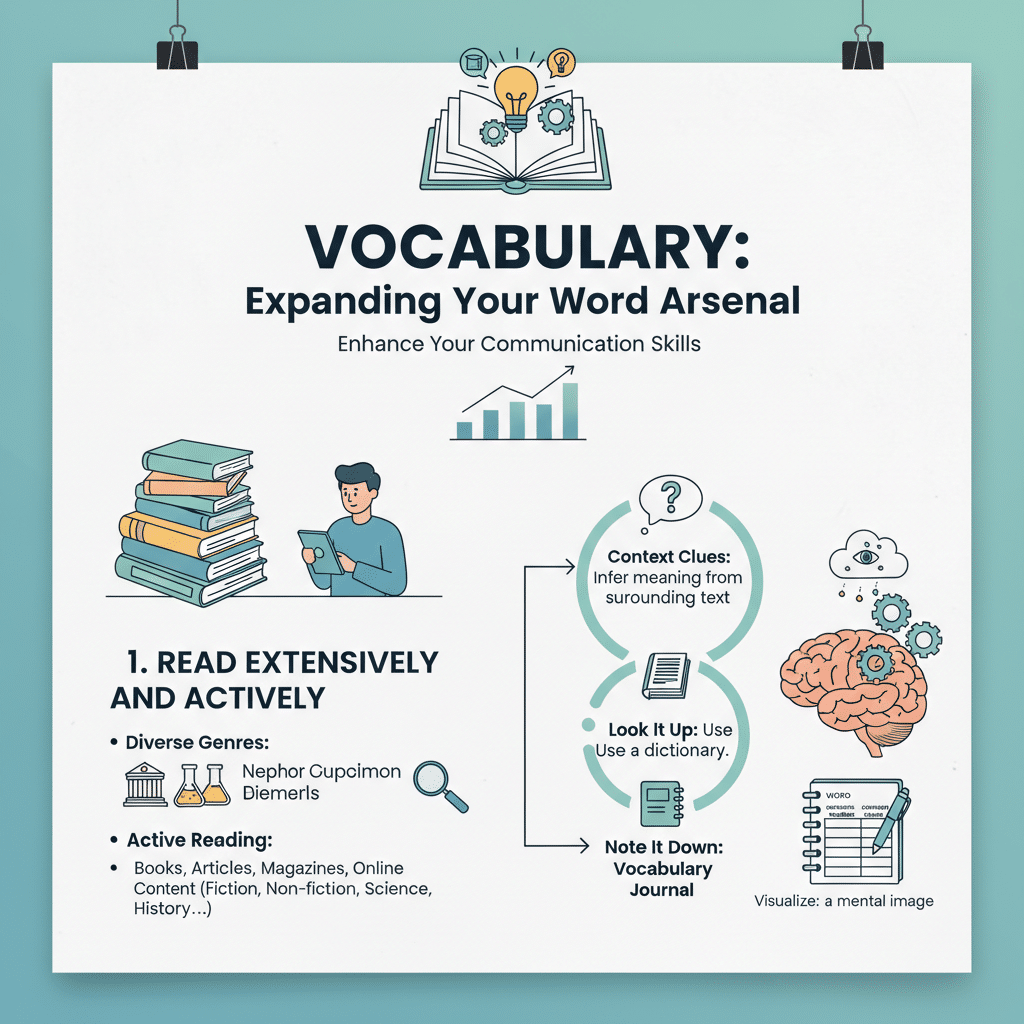

Reading: Your Ultimate Writing Mentor
This might sound counterintuitive – to improve writing, read? Absolutely! Reading is arguably the single most effective way to enhance your writing. Every time you read, you’re subconsciously absorbing sentence structures, vocabulary, storytelling techniques, and stylistic choices.
Read, Read, Read (and Diversify!)
- Read What You Love: Start with genres, topics, and authors you genuinely enjoy. If you love travel, read travel blogs and memoirs. If you’re into sports car sketching, read articles and books about design and engineering. The key is to make it pleasurable.
- Expand Your Horizons: Once you’re in the habit, venture out of your comfort zone. Read different genres: fiction, non-fiction, essays, poetry, news articles, even technical manuals. Each offers unique insights into language use.
- Read the Good Stuff (and the Not-So-Good): Analyze what makes good writing good. What makes you keep turning pages? What makes you trust an author? Conversely, notice what makes writing confusing or boring. Learn from both successes and failures.
Active Reading: More Than Just Skimming
Don’t just passively consume words. Become an active reader:
- Highlight and Annotate: Underline impactful sentences, circle interesting vocabulary, or jot down questions in the margins. Engage with the text.
- Identify the Author’s Techniques: How does the author start their paragraphs? How do they build suspense or explain complex ideas? What kind of imagery do they use? How do they maintain a particular tone, perhaps a casual tone like this article aims for?
- Notice Sentence Structure: Do they use short, punchy sentences, or long, flowing ones? A mix is usually best, and observing how others balance them can greatly improve your own rhythm.
- Pay Attention to Flow: How do ideas transition from one paragraph to the next? What are the “connector” words and phrases they use?
By actively engaging with what you read, you’re essentially getting free writing lessons from seasoned pros.

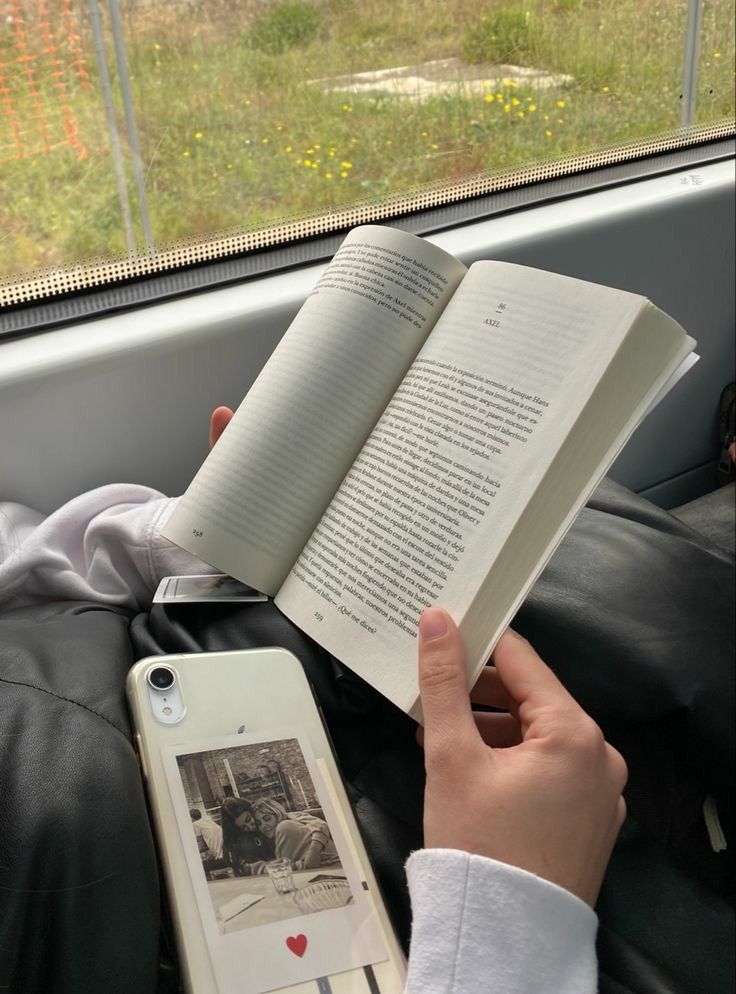
Practice Makes Progress: Writing Every Single Day
You wouldn’t expect to become a great musician without practicing your instrument, right? Writing is no different. Consistent practice is the bedrock of improvement. And no, it doesn’t have to be a masterpiece every time! The goal is simply to keep those writing muscles toned.
Daily Writing Habits
- Journaling: This is a fantastic, no-pressure way to write every day. Write about your thoughts, your day, your dreams, or just a stream of consciousness. Nobody else has to read it, so you’re free to experiment and make mistakes. It’s also a great way to explore travel art journal ideas if you’re on the go!
- Freewriting: Set a timer for 5-10 minutes and just write without stopping. Don’t worry about grammar, spelling, or coherence. The goal is to get words flowing and overcome the fear of the blank page.
- Blogging/Online Content: Start a personal blog about a hobby you love, whether it’s interior design trends, cooking, gaming, or anything else. Writing for a potential audience (even if small) adds a layer of motivation and purpose.
- Daily Prompts: If you struggle with ideas, use writing prompts. Many websites offer daily prompts to get your creative juices flowing. Write a short story, a poem, or an opinion piece based on the prompt.
Specific Writing Exercises
- Sentence Combining: Take several short, choppy sentences and combine them into one longer, more complex (but still clear) sentence. This helps with flow and sentence variety.
Example: “The cat was black. It sat on the mat. The mat was old. The cat watched a bird.” Combined: “The black cat sat on the old mat, intently watching a bird.”
- Word Count Challenges: Try writing a short piece (e.g., 200 words) on a topic. Then, try to convey the same information in 100 words. This forces conciseness and clarity.
- Describe an Object: Pick a mundane object in your room (a coffee cup, a pen, a plant) and describe it in as much detail as possible, using all five senses. This sharpens your observational and descriptive skills.
- Rewrite a Paragraph: Take a paragraph from an article or book you’ve read and try to rewrite it in your own words, maintaining the original meaning but changing the style. This helps you understand different ways to express ideas.


The Art of Self-Editing and Seeking Feedback
Writing is a two-part process: drafting and refining. Many people dread the editing phase, but it’s where your writing truly shines. And getting outside perspectives is invaluable.
Becoming Your Own Best Editor
- Take a Break: After you finish a draft, step away from it for a few hours, or even a day. When you return with fresh eyes, you’ll spot errors and awkward phrasing much more easily.
- Read Backward (for typos): For proofreading, try reading your work backward sentence by sentence. This breaks the flow and forces you to focus on individual words, making typos more apparent.
- Read Aloud (again!): I can’t stress this enough. Reading your work aloud helps you catch clunky sentences, repetitive phrases, and grammatical errors that silent reading might miss.
- Check for Clarity and Conciseness:
Eliminate Jargon: Are you using overly complicated words when simpler ones would do? Cut Redundancy: Are you saying the same thing multiple times? Look for filler words (e.g., “really,” “very,” “just,” “in order to”). Active Voice:* Whenever possible, use active voice (“The dog chased the ball” instead of “The ball was chased by the dog”). It’s more direct and energetic.
- Use Tools Wisely: Spell checkers are a given, but grammar checkers like Grammarly can highlight potential issues. Just remember, they are tools, not infallible editors. Use your judgment! Tools like PaperWriter can be incredibly helpful for students seeking feedback or advanced assistance, especially for longer academic pieces.
The Power of Peer Review
- Find a Writing Buddy: Exchange work with a friend, colleague, or fellow writer. Offer constructive criticism and be open to receiving it. A fresh pair of eyes can spot things you’re blind to.
- Join a Writing Group: Whether online or in person, a writing group provides a supportive environment for sharing your work and getting diverse feedback.
- Ask Specific Questions: When seeking feedback, don’t just say, “What do you think?” Ask targeted questions: “Is the introduction engaging?” “Is this paragraph clear?” “Does the conclusion feel satisfying?”
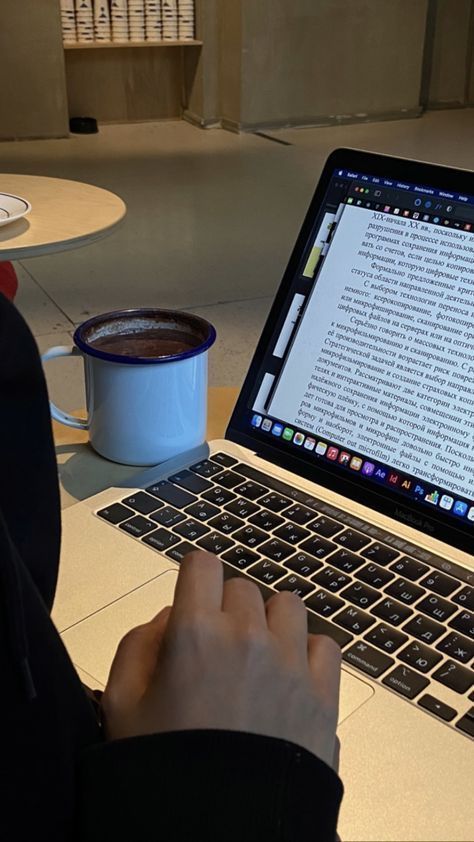

Finding Your Voice and Embracing Creativity
Great writing isn’t just about perfect grammar; it’s about connecting with your reader. And a huge part of that is developing your unique “voice.” This is what makes your writing sound like you.
Discovering Your Unique Style
- Experiment with Tone: Try writing the same piece in different tones – formal, casual, humorous, serious. See what feels most natural and effective for you. This article, for instance, aims for a casual tone to make learning enjoyable.
- Embrace Your Personality: Don’t try to sound like someone else. Let your quirks, humor, and unique perspective shine through. If you’re passionate about home office styling ideas, let that enthusiasm permeate your writing on the topic.
- Read Widely (again!): As you read authors you admire, notice their voice. What makes it distinctive? You’re not copying them, but rather learning what’s possible and how different voices achieve different effects.


Creative Writing for Fun and Skill
- Storytelling: Humans are hardwired for stories. Practice telling short stories, whether true anecdotes or fictional tales. Focus on elements like plot, character, setting, and dialogue.
- Poetry: Even if you don’t aspire to be a poet, experimenting with poetry forces you to think carefully about word choice, rhythm, and imagery. It’s a fantastic exercise in conciseness and impact.
- Describe a Scene: Imagine you’re writing a movie script. Describe a scene in vivid detail, focusing on sensory information and evoking emotion.
- Metaphors and Similes: Play around with figurative language. How can you compare one thing to another to make your writing more vivid and memorable?
Example: “Her smile was a sunrise after a long night.” (Metaphor) Example: “His voice was as smooth as melted chocolate.” (Simile)


Adapting to the Digital Age: Writing for the Screen
In today’s world, much of our writing happens digitally. Whether it’s an email, a social media post, a blog entry, or a website copy, the principles of good writing still apply, but with some specific considerations.
- Conciseness is Key: People scan online. Get to the point quickly. Use short paragraphs and sentences.
- Scannability: Employ headings, subheadings (like in this article!), bullet points, and numbered lists to break up text and make it easy to skim. Bold important phrases.
- Engaging Hooks: The first sentence of an email or blog post is crucial. It needs to grab attention immediately.
- Strong Call to Action: What do you want your reader to do after reading your piece? Make it clear.
- SEO Awareness (for public content): If you’re writing for a website or blog, naturally incorporate keywords that people might search for to find your content. This helps your writing reach a wider audience. If you’re discussing how window film transforms spaces, ensure you use those specific terms.
Overcoming Writer’s Block and Staying Motivated
Even the most seasoned writers face moments when the words just won’t come. Writer’s block is real, but it doesn’t have to stop you.
Banish the Block
- Change Your Environment: Sometimes a change of scenery is all you need. Go to a coffee shop, a park, or even just another room in your house.
- Start Small: Don’t try to write the whole article at once. Just aim for one paragraph, or even one sentence. Momentum often builds from small beginnings.
- Brainstorming Techniques:
Mind Mapping: Start with your central idea and branch out with related thoughts, keywords, and questions. Outline: Structure your thoughts logically before you start writing prose. Even a rough outline can provide a roadmap. This is particularly helpful for longer pieces or complex topics. The “Ugly First Draft”:* Give yourself permission to write a terrible first draft. It doesn’t have to be perfect; it just has to exist. You can always clean it up later.
- Take a Break: Go for a walk, listen to music, do something completely unrelated. Sometimes stepping away allows your subconscious to work things out. Engaging in self-development activities that aren’t writing-related can often refresh your mind for writing.
Keep the Motivation Flowing
- Set Realistic Goals: Don’t expect to write a novel in a month. Set achievable daily or weekly word counts.
- Reward Yourself: Finished a tough writing session? Treat yourself to a coffee, a short break, or watch an episode of your favorite show.
- Track Your Progress: Seeing how much you’ve written over time can be incredibly motivating. Use apps or a simple spreadsheet.
- Connect with Other Writers: Share your struggles and triumphs with others who understand the writing journey. This community aspect can be a huge motivator.
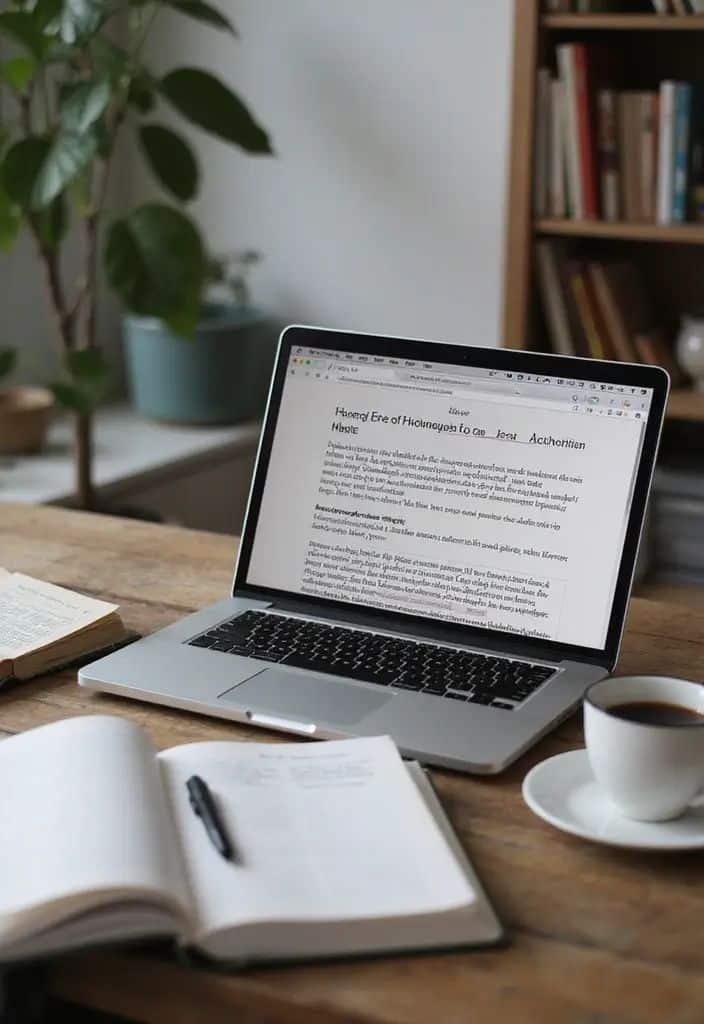

Conclusion: Your Writing Journey Starts Now!
There you have it! Improving your writing skills doesn’t have to be a daunting task filled with endless rules and dry exercises. By embracing consistent practice, active reading, thoughtful editing, and a willingness to play with language, you can transform your communication and unlock a powerful tool for every area of your life. From crafting compelling emails to telling captivating stories, the ability to express yourself clearly and engagingly is a skill that will serve you well, no matter your path.
Remember, every great writer started somewhere. They made mistakes, they learned, and most importantly, they kept writing. So, take these fun and easy ways to improve writing skills, pick one or two that resonate with you, and start today. Don’t aim for perfection; aim for progress. The world is waiting for your words! So, what are you waiting for? Grab a pen, open a document, and let your unique voice shine!
How can I improve my grammar and vocabulary in a fun way?
You can make learning grammar fun through grammar games and short drills, and expand your vocabulary by subscribing to a Word of the Day, reading widely, and using a thesaurus carefully to find synonyms.
Why is good writing important beyond being a novelist?
Good writing is crucial in everyday life because it underpins effective communication in both personal and professional contexts, helping you express ideas clearly, connect with others, and succeed professionally.
What is the best way to learn from reading?
Active reading enhances your skills by highlighting impactful sentences, analyzing authors’ techniques, noticing sentence structures, and observing how ideas flow, allowing you to learn writing styles and tactics subconsciously.
How can I overcome writer’s block and stay motivated?
Changing your environment, starting small, using brainstorming techniques, setting realistic goals, rewarding yourself, and connecting with other writers can help you overcome writer’s block and maintain motivation.
- 17shares
- Facebook0
- Pinterest17
- Twitter0
- Reddit0

